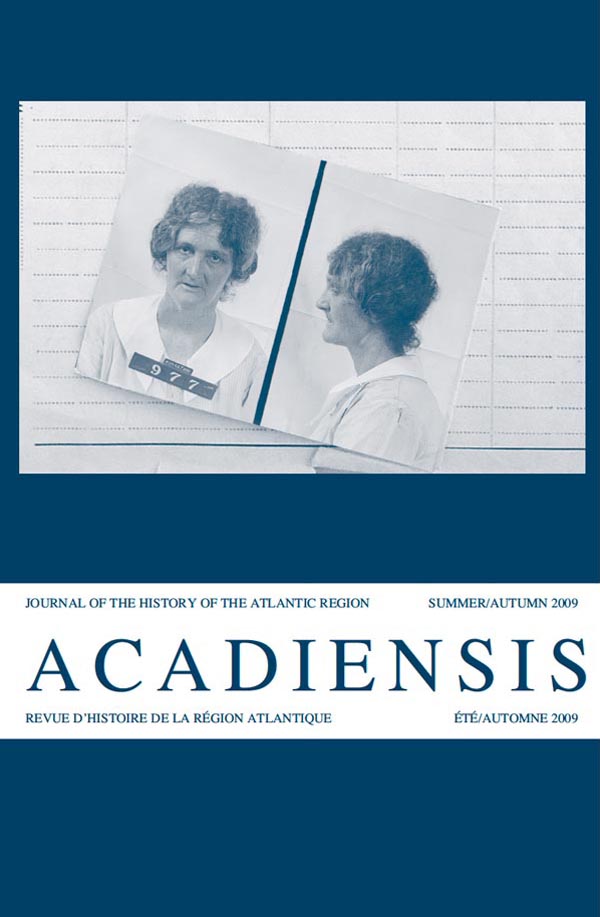Abstract
In the spring of 1912, the six children of Patrick and Minnie McGee died of mysterious causes on Prince Edward Island. Minnie McGee was charged for the murder of one son and convicted of poisoning him. A case study of McGee’s subsequent life in a series of state institutions illuminates the relationship between one (admittedly extraordinary) woman and the amorphous thing called the state. While historians have often emphasized the unitary nature of the state’s disciplinary power, this case highlights the fractured features of state power, particularly within the federal system that encompassed McGee and others like her. Résumé Au printemps de 1912, les six enfants de Patrick et Minnie McGee moururent de causes mystérieuses à l’Île-du-Prince-Édouard. Accusée du meurtre d’un de ses fils, Minnie McGee fut reconnue coupable de l’avoir empoisonné. Une étude de cas du reste de la vie de McGee passée dans divers établissements publics illustre le relation entre une femme (certes hors du commun) et cette chose amorphe appelée l’État. Si les historiens ont souvent souligné le caractère unitaire du pouvoir disciplinaire de l’État, ce cas met en lumière les défaillances du pouvoir de l’État, en particulier à l’intérieur du système fédéral dans lequel se trouvaient McGee et d’autres comme elle.Copyright for articles published in this journal is retained by the author(s), with Acadiensis being granted a non-exclusive licence to each and every right in the work throughout the world. After publication of the work, the author(s) shall have the right to self-archive the work and to reprint the work in whole or in part in books authored by or edited by the author(s) without the payment of any fee. In these other formats, however, the author or authors are required to acknowledge the original publication of the work in the pages of the journal. In the case of any requests to reprint the work, Acadiensis will require a standard permission fee -- to be divided equally between the journal and the author. In the event that such requests are received by the author(s), the author(s) shall direct such requests to the journal.

